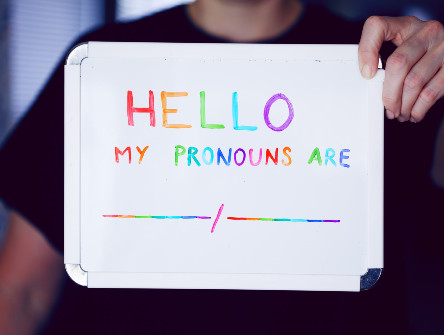When a commitment to precedent rings hollow
The June Medical ruling by the U.S. Supreme Court illustrates how relying on stare decisis can only go so far in ensuring abortion access.
.jpg?ext=.jpg)
We often hear that we’re living in “unprecedented times.” What is not unprecedented is the precarious status of abortion access in the United States (and parts of Canada, too). While abortion rights seem slightly safer after the decision of the United States Supreme Court in June Medical Services LLC v Russo, this is a shaky victory.
If anything, June Medical proves that precedent is slippery — and political.
In June Medical, the Supreme Court struck down a Louisiana law that required physicians providing abortions to have admitting privileges at a nearby hospital. Justice Stephen Breyer, for the majority, with Chief Justice John Roberts concurring, found the law was unconstitutional for imposing an undue burden on abortion access. (Anti-abortion folks like to say that “admitting privileges” laws are designed to protect people having abortions, but the evidence proves otherwise; these are called “TRAP” laws for a reason.)
If this story sounds familiar, that’s because we’ve heard it before: the Supreme Court struck down an identical Texas law just four years ago, in Whole Woman’s Health v Hellerstedt. As Jill Filipovic tweeted about June Medical, “The fact that this even got to the Supreme Court is absolutely absurd.”
So let’s hold the applause for Roberts, who openly admitted his antipathy to abortion: “I joined the dissent in Whole Woman’s Health and continue to believe that the case was wrongly decided. The question today, however, is not whether Whole Woman’s Health was right or wrong, but whether to adhere to it in deciding the present case.”
Roberts went on to explain that “stare decisis” means “to stand by things decided” and “is the legal term for fidelity to precedent.” (He also quoted from William Blackstone and Alexander Hamilton, for good measure.) But his “fidelity to precedent” is likely temporary, and perhaps disingenuous. Many observers believe he will be willing to overturn Roe v Wade, the 1973 decision that established a constitutional right to abortion in the U.S. when the right case comes along.
This is why it is dangerous to put abortion access in the hands of a Chief Justice who doesn’t believe in it. As Ian Millhiser wrote in Vox, “The takeaway from Roberts’s opinion isn’t that the right to an abortion is safe. It’s that Roberts is reluctant to bend the court’s ordinary procedures to hand abortion opponents a victory in this particular case.”
For Blackstone, as quoted by Roberts, stare decisis was supposed to “keep the scale of justice even and steady.” But the doctrine can also serve to keep bad law alive, and prevent us from seeing the law systemically rather than as a series of individual cases.
The Washington State Supreme Court recognized this in a statement issued in response to recent police killings of Black Americans: “Too often in the legal profession, we feel bound by tradition and the way things have ‘always’ been. We must remember that even the most venerable precedent must be struck down when it is incorrect and harmful. The systemic oppression of black Americans is not merely incorrect and harmful; it is shameful and deadly.” (To my knowledge, no Canadian court has issued an equivalent statement in response to the latest police killings of Black and Indigenous people in this country).
I thought of the Washington Court’s statement on a recent walk of public resistance, organized by the Black Power Hour to provide “a collectively guided tour of downtown Halifax’s monuments to slavery and colonialism.” Speakers like Dr. Isaac Saney spoke about the history of enslavement in Nova Scotia (yes, Nova Scotia), and the role of the justice system. These are some of the topics covered in Dalhousie University’s landmark 2019 Report on Lord Dalhousie’s History on Slavery and Race.
The report’s chapter on the legal system discusses the judiciary’s response to enslavement, particularly the role of two of the province’s chief justices, Thomas Andrew Lumisden Strange and Sampson Salter Blowers: “Instead of explicitly declaring slavery to be illegal, these judges made it difficult for those asserting ownership of enslaved persons to prove that ownership. In these efforts, they were joined by some sympathetic lawyers and by Black people willing to bring their claims and grievances to the courts. While this struggle against slavery continued and slavery gradually disappeared, racism against Black people did not disappear. And it is not as if the court was routinely used as an anti-slavery instrument. Compared with the number of enslaved people in the colony, those who took their case to court were few.”
Strange and Blowers sat in the late eighteenth and early nineteenth centuries. Much like Chief Justice Roberts today, they operated within an unjust system, whose legal scaffolding could perpetuate harm even as individual cases could offer hope.
Thinking of this, it’s worth considering how the release of June Medical coincides with the resurgence of Black Lives Matter. In Louisiana, limitations on abortion access have a disproportionate impact on women of colour, who comprise over two-thirds of abortion patients. At the same time, many of those working to protect abortion in Louisiana are women of colour, as the Center for Reproductive Rights has highlighted.
The BLM protests are an opportunity to re-examine the intersections of abortion rights and racial justice.
Abortion access remains one aspect of a much broader fight for reproductive justice — a term coined by the Women of African Descent for Reproductive Justice to encompass “the human right to maintain personal bodily autonomy, have children, not have children, and parent the children we have in safe and sustainable communities.” Check out the SisterSong website; this “Defund Police, Not Abortion” newsletter from the National Network of Abortion Funds; and this thread from Dr. Jamila Perritt for more. In Dr. Perritt’s words: “Reproductive justice demands that Black lives matter, unequivocally and unapologetically […] even when most of the world doesn’t.”
The framework of reproductive justice places women of colour at the centre, and focuses on networks of community care. This is a much more stable foundation for reproductive rights than one judge’s lip service to precedent.


